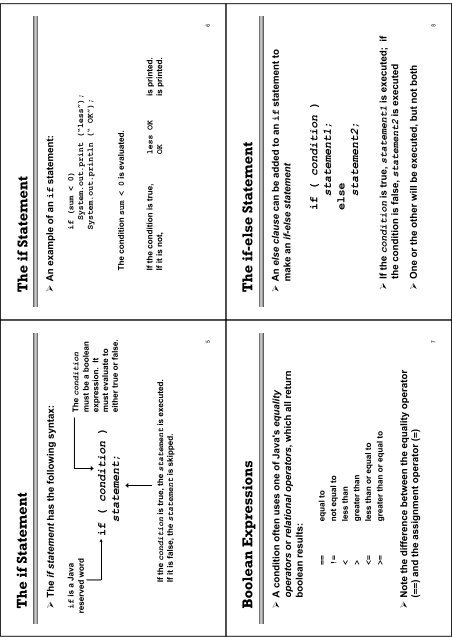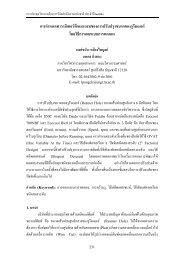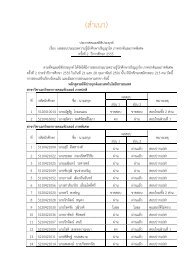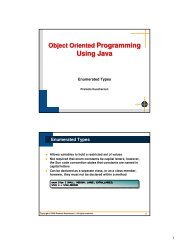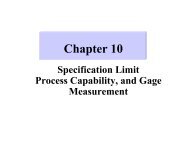X - AS Nida
X - AS Nida
X - AS Nida
Create successful ePaper yourself
Turn your PDF publications into a flip-book with our unique Google optimized e-Paper software.
The if Statement<br />
The if Statement<br />
The if Statement<br />
The if Statement<br />
An example of an if statement:<br />
The if statement has the following syntax:<br />
if (sum < 0)<br />
System.out.print (“less”);<br />
System.out.println (“ OK”);<br />
The condition<br />
must be a boolean<br />
expression. It<br />
must evaluate to<br />
either true or false.<br />
if is a Java<br />
reserved word<br />
if ( condition )<br />
statement;<br />
The condition sum < 0 is evaluated.<br />
If the condition is true, less OK is printed.<br />
If it is not, OK is printed.<br />
If the condition is true, the statement is executed.<br />
If it is false, the statement is skipped.<br />
6<br />
5<br />
The if-else if else Statement<br />
Boolean Expressions<br />
Boolean Expressions<br />
An else clause can be added to an if statement to<br />
make an if-else statement<br />
A condition often uses one of Java's equality<br />
operators or relational operators, which all return<br />
boolean results:<br />
if ( condition )<br />
statement1;<br />
else<br />
statement2;<br />
== equal to<br />
!= not equal to<br />
< less than<br />
> greater than<br />
= greater than or equal to<br />
If the condition is true, statement1 is executed; if<br />
the condition is false, statement2 is executed<br />
One or the other will be executed, but not both<br />
Note the difference between the equality operator<br />
(==) and the assignment operator (=)<br />
8<br />
7


